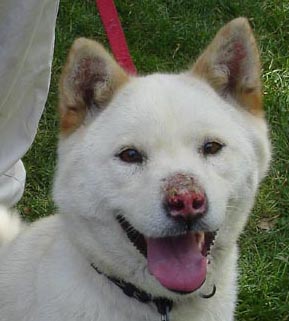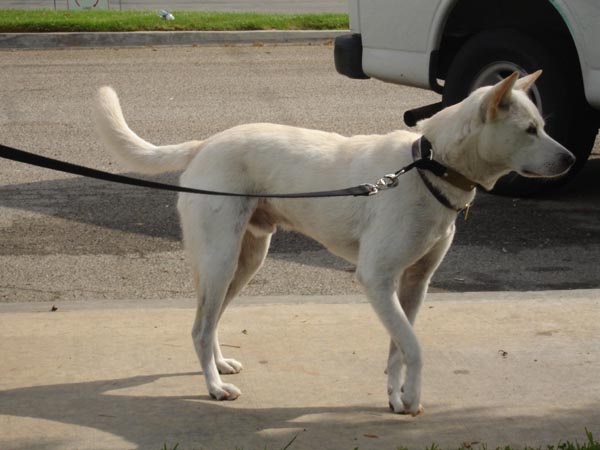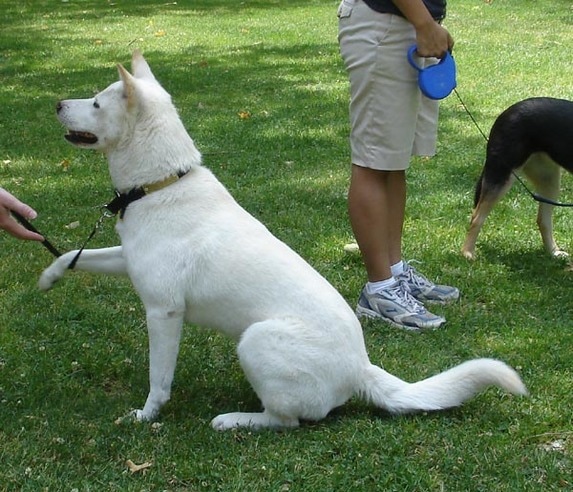Health
The Korean Jindo Dog is said to be a healthy breed to due how it was naturally developed on its island; however, there are a couple health issues that have been discovered in dogs in the United States.
The KJDAA considers the following as present in the Korean Jindo Dog breed:
The KJDAA considers the following as present in the Korean Jindo Dog breed:
Discoid Lupus Erythematosus (DLE)
|
"Discoid lupus erythematosus (DLE) is an autoimmune disease wherein a dog becomes allergic to its own tissues. This disease results in crusting, depigmentation, redness, and ulceration of the nose. Lesions may also appear around the eyes, ears, limbs, and other areas. DLE can occur at any age, and is seen more often in such breeds as Collies, German shepherds, Shelties, and Siberian huskies.
Exposure to U-V light (e.g. sunlight) can exacerbate or even precipitate this condition. This is why it tends to be more severe in summer or in sunny climates." - http://www.petwave.com/Dogs/Health/Lupus/DLE.aspx |
Hypothyroidism
|
Hypothyroidism in the Korean Jindo Dog tends to manifest itself with aggression and poor skin and coat.
In the top picture, the dog has a thinned coat and the exposed skin has darkened. In the bottom picture, the coat has thickened and the dark skin has disappeared. |
The following have been reported among Korean Jindo Dogs of known background and will be elevated to breed health issues if more cases are found:
- cataracts (diagnosed as a senior, unknown origin)
- corneal dystrophy, or epithelial/stromaldystrophy (6 years of age)
- Cushing's Disease suspected (weight gain, excessive panting started at 8 yrs of age)
- cystinuria (diagnosed at 2 years of age).
- environmental allergies (rumored that the dog had it in Korea, confirmed after import to the US)
- luxated patella (Grade 1)
- pemphigus erythematosus (2008 research article)
- pemphigus foliaceus (onset at 7 years of age, confirmed with biopsy) with severe reaction to prednisone/cytopoint treatment
- seizures, grand-mal (started @ 3 years of age)
- spondylosis (diagnosed as a 9 yr old, suspect hereditary)
The following has been found on Embark DNA tests, which are non-breed specific panel tests. Panel tests may be using linkage analysis rather than direct analysis of the mutation. In addition, the direct analysis may be patented by the original researchers that discovered the mutation rather than Embark.
These tests still need to be validated on Korean Jindo Dogs to rule out false positives and to determine if the test applies to the breed. Currently, the tests are indicating carrier status and there are no known pedigreed dogs that are affected.
- Canine Multifocal Retinopathy cmr1 [BEST1 Exon 2]
- Degenerative Myelopathy [SOD1A ‐ chr31]
The following have been reported in Jindo-like dogs of unknown background (rescues, non-pedigreed). They may or may not be issues in the Korean Jindo Dog breed :
- degenerative myelopathy
- food allergies
- glaucoma
- hip dysplasia
- inflammatory bowel disease



